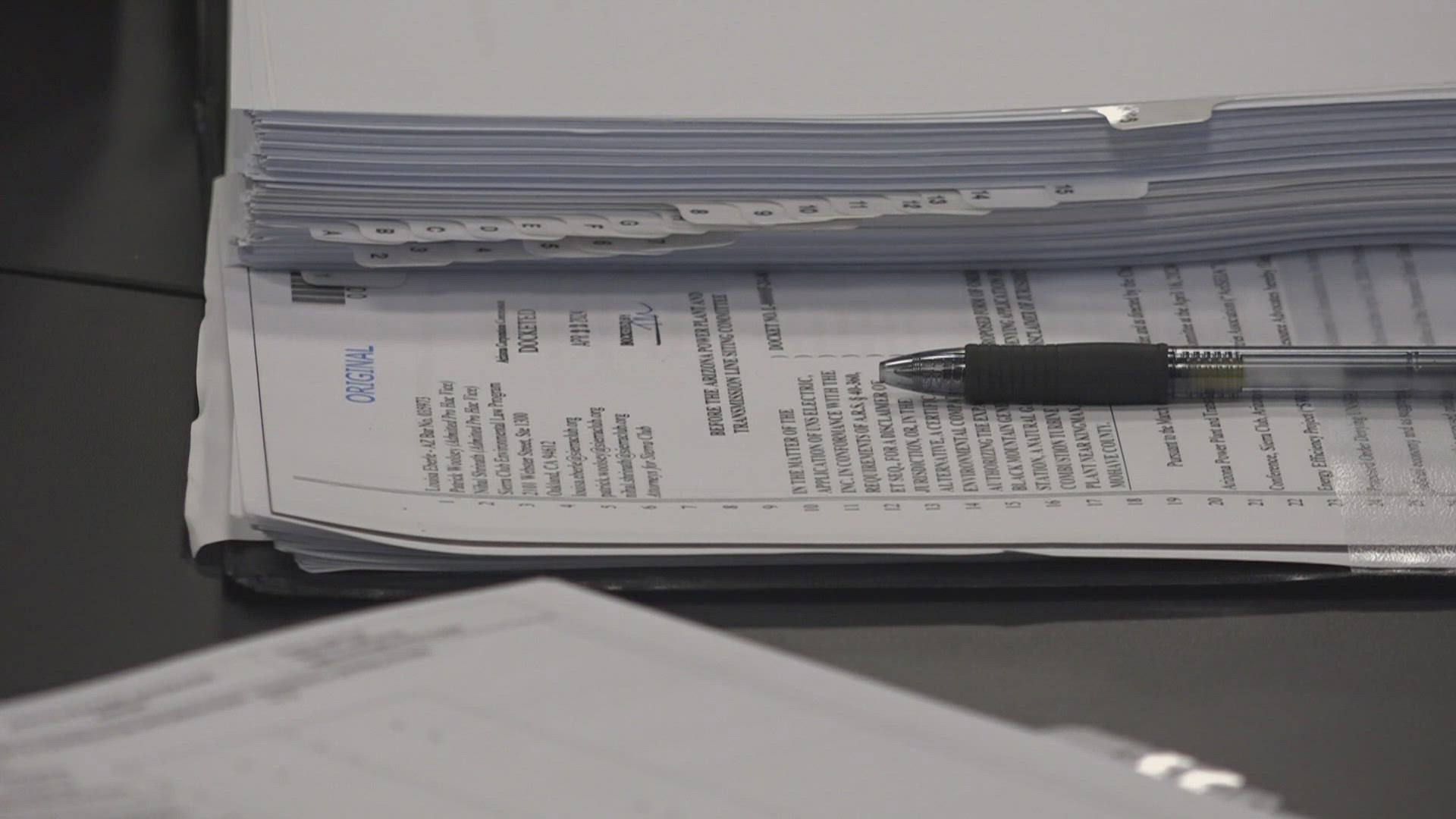PHOENIX — Arizona utility regulators have effectively removed a level of government oversight for the construction of small electric generating plants after a surprise 4-1 vote this week in favor of a power company expanding its portfolio.
UniSource Energy Services, also known as UNSE, plans to build four new natural gas turbines at an existing plant near Kingman. UNSE applied for a “disclaimer of jurisdiction” to avoid a regulatory hurdle known as a Certificate of Environmental Compatibility, or CEC.
The request was unusual. The heart of the controversy relates to a decades-old state law that requires companies wanting to build power plants generating more than 100 MW to obtain a CEC. The utility argued their project was exempt from that requirement because the four proposed turbines only generate 50MW each. Although they share infrastructure, they should be considered separate power generation units, UNSE said.
The CEC process can draw bad publicity to a utility
CECs are intended to assure the public that new energy generation plants will not pose “unreasonable impacts” to people, wildlife and resources. The process can also be a publicity nightmare for a utility, as demonstrated three years ago when SRP proposed new turbines near the small rural town of Randolph. Residents protested and the Commission denied a CEC for the utility. Both sides eventually signed a settlement agreement that involved major concessions by SRP.
Commissioners say their hands are tied by the law
On Wednesday, the four Republican commissioners agreed with UNSE’s legal argument, going against a lower government body’s recommendation. That group, an 11-member “line siting” committee, voted 9-2 last month to reject UNSE’s request. The chair of the committee said at the time the utility’s request for an exemption amounted to what would be an “absurd” interpretation of the law.
But on Wednesday, the commission granted the utility its appeal on the reasoning the commission does not have “mandatory jurisdiction” over electric generation plants under 100 MW – even in cases where those plants are built in a group and connected by infrastructure.
“All of the arguments I’ve heard today were policy arguments, none addressed the plain language of the law,” said Commissioner Nick Myers. “And I don’t believe this decision will give utilities, paraphrasing what I’ve heard, free rein to destroy the environment because there are other checks and balances.” Commission Executive Director Doug Clark later added in a written statement the law “left the Commission no choice but to disclaim jurisdiction.”
Critic: Interpretation of law is “self-serving and inaccurate”
Other stakeholders in the case strongly disagree. Emily Doerfler of the nonprofit Western Resource Advocates called UNSC’s legal argument “self-serving and inaccurate.”
She said communities near future power plants will have less leverage to protect their physical views, their environment and their quality of life.
“Without regulation, the decisions that impact these risks are left to corporations and not governmental bodies,” Doerfler said.
Autumn Johnson, a representative of solar companies, said the vote opens a floodgate for utilities to build smaller gas and (potentially) nuclear generation plants without adequate commission oversite, and another renewable energy advocate alleged less oversite will mean consumers face the possibility of higher bills.
Utility will need other permits
The Corporation Commission Staff, which researches issues before the commission, sided with UNSE. The utility said Tuesday that even without a CEC, they will still be required to acquire permits from the Arizona Department of Environmental Quality, Arizona Department of Water Resources, and Mohave County.
Opponents of the decision say the CEC is one of the few legal regulatory requirements utilities must participate in before construction. They pointed to at least five past cases in which the commission reviewed CECs for projects involving turbines amounting to less than 100MW individually, and collectively more than 100MW.
“It makes zero sense,” said Line Siting Committee Chair Adam Stafford, who voted with 8 of his colleagues to deny the request. “The legislature certainly did not intend for people situated next to a plant that has multiple smaller units to have less opportunity to engage in the process than people who are next to a plant that has one unit that is a hundred megawatts.”
4 Republican commissioners continue siding with utilities on fossil fuels
The vote is part of a larger trend by the current makeup of the commission to side with utilities over positions taken by consumer groups and renewable energy advocates on disputed issues.
In November 2023, the Commission approved an APS gas plant expansion in an unusual circumstance that did not allow public comment. The Sierra Club called the commission’s handling of the case “sneaky” and “premature.”
Last year, the commission terminated or dramatically weakened policies meant to encourage utility and customer-sided renewable energy and Chair Jim O’Connor even issued an official statement on ACC letterhead in November decrying what he called a national “war on fossil fuels.”
Although less damaging to the environment than coal, natural gas plants emit methane into the atmosphere, a heat-trapping gas that contributes to climate warming.
According to NASA, “scientific evidence for warming of the climate system is unequivocal,” global temperature increases are largely driven by increased emissions and other human activities, and the earth is warming “at a rate not seen over many recent millennia”.
Up to Speed
Catch up on the latest news and stories on the 12News YouTube channel. Subscribe today.

